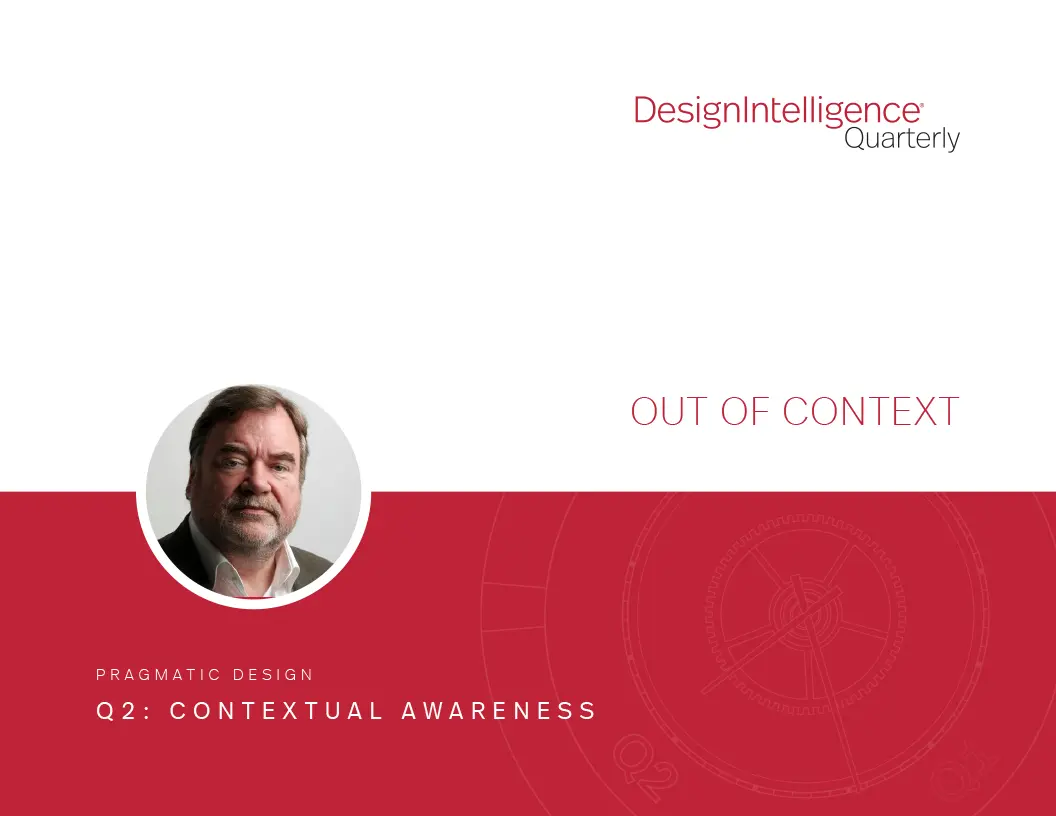Out of Context
by Paul Finch
Programme Director, World Architecture Festival
April 12, 2023
Letters from London: Paul Finch considers the relationships of buildings, the history of change and the focus of the World Architecture Festival’s WAFX Awards programme.
“You have taken that quote out of context.”
is the politician’s frequent complaint as they try to explain why they said a certain thing or used a certain phrase. Sometimes with good cause, sometimes not.
The same might be said of certain sorts of architectural criticism, especially that which stems from an extreme conservationist or historicist point of view. Such criticism will focus on the immediate and the local in relation to buildings and structures which happen to have survived, rather than longer histories of site, neighbourhood and, indeed, city. All with a neophobic attitude that assumes nothing has improved since the 18th century (dentistry excluded).
As a result, some quarters produce an inevitable demand for developments which are “contextual.” At its worst interpretation, this means “just like the one next door” and is a certain recipe for creative ennui and failed replicants. Preferable is the phrase used in respect of new buildings designed in Miami’s Art Deco district: They should be “similar but not the same,” we are told.
That seems a reasonable proposition for such a distinctive part of the city, but it is not a phrase – or design formula – that can be adopted everywhere. Take the example of tall buildings. In some cities – New York or Chicago, for example – they are so familiar that they constitute the idea of “traditional” buildings. In other places, particularly rural areas, urban-scale towers would seem utterly incongruous, though a folly could be entirely acceptable. Not because it has immediate neighbours of the same scale, but because that form of architecture has a history which makes an addition automatically contextual – the addition by itself is another form of context.

Even in cities, there may be areas where extreme height is eschewed – for example, in Washington, D.C., or suburbs with a distinctive low-rise character which residents may wish to preserve, even when extending. But discussions about housing density rapidly turn into battles over appropriateness. Often as not, the issue is local context. But what about the historical context of city-building over thousands of years? Is there not a city context for tall buildings and high-density living which predates the spread of low-rise suburbs in the 20th century and today? Are those anonymous-looking new towns in China, which are being developed on a U.S. rather than a European model, examples of ignoring the historical context of the walled Chinese city?
Today’s global concerns around climate change, food and water shortages, and potential future pandemics have provided a new set of contexts which leading architects and designers are responding to, in the process of changing the ways in which we live, work and play. At the same time, they are changing the contexts for a planetary population set to double over the next 40 years.
Thinking about key factors that will affect the ways in which architects, engineers and allied professionals will design our futures resulted in a programme at the World Architecture Festival called the WAFX Awards (the X is because they were launched to mark our 10th annual festival in 2017). These awards cover multiple contexts. Some award categories are about the physical world (carbon and climate, food and water), while others focus on sociological circumstances which inform client and user desires (power and justice, social equity, ageing and health). Other categories look at the methods in which we design and construct (building technology), smart cities, and the ways in which we can acknowledge both history and carbon issues (retrofit and creative reuse).
This WAFX Awards programme is for future projects only and can include theoretical and experimental ideas which may challenge or transform existing conditions. Self-sustaining structures, new methods of agricultural production and ways of repairing the physical and psychological impacts of colonialism are all welcome at this awards table.
In short, there is a strong case for challenging existing contexts, rather than taking them as either essential or immutable. We need more and better housing, more responsive approaches to energy production, greater attention to promotion of the natural environment (not least within buildings themselves). We need more environments that stimulate, enable and promote the talents, often latent, within our populations.
Does this automatically mean the abandonment of “tradition”? No, but challenges to tradition are as old as tradition itself. You make a change because a change is needed, and if this results in a change of context for the future, so be it.
Paul Finch is the programme director of the World Architecture Festival and a regular contributor to DesignIntelligence.


